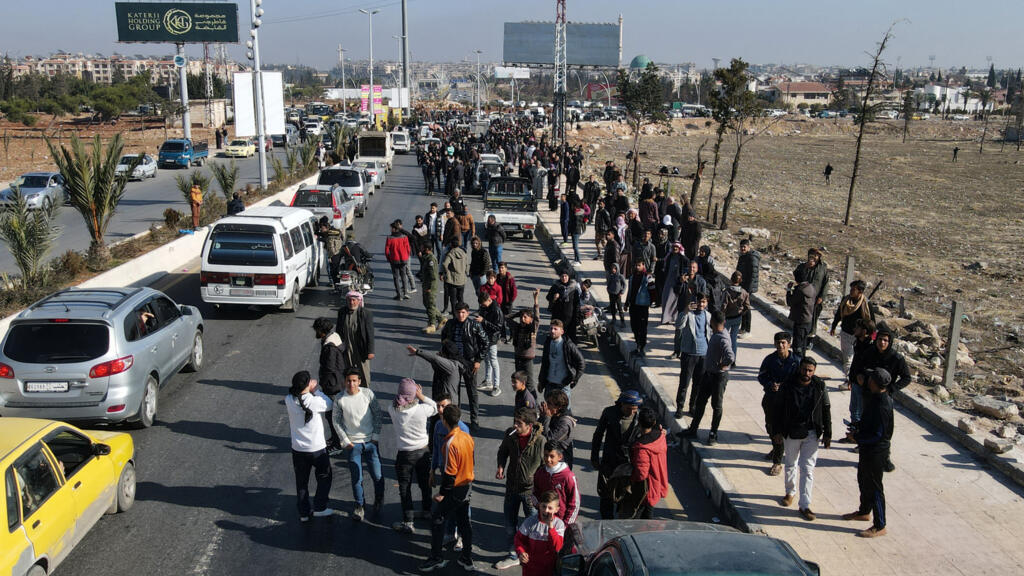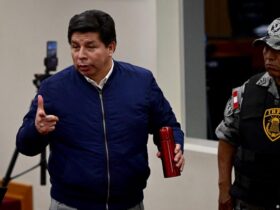The U.S. and South Korean governments have blocked the operations of media organizations broadcasting into North Korea, leaving thousands of residents of the world’s most isolated country with no idea what is happening to the outside world.
“This is very bad for the people of North Korea and a serious blow to human rights there,” said Kim Yu-jin, who fled North Korea with her mother and sister in the 1990s.
“The governments are depriving the North Korean people of their freedom of access to information and now they will only listen to Pyongyang’s propaganda,” he told DW.
Previously, North Koreans could secretly listen to Radio Free Asia (RFA) and Voice of America (VOA) from the US, as well as “Voice of Freedom” broadcasts from South Korea. Activists have said the broadcasts help North Koreans endure hardships by allowing them to hear things the regime does not want them to know.
Kim said that before leaving the party he never listened to foreign radio broadcasts because it was too dangerous to do so. The regime in Pyongyang was willing to spend a lot of time and effort catching and punishing people who had access to foreign media. In some cases, those captured would be publicly tried and sentenced to hard labor or, in some extreme cases, death.
Kim said the North Korean government fears those broadcasts, and warned that the dangers for those listening to foreign media have grown severe in recent years.
Why was the broadcast stopped?
The Voice of America has been effectively silenced since Donald Trump returned to the White House earlier this year. The new administration immediately fired hundreds of employees and issued an executive order to dismantle VOA’s parent agency, the US Agency for Global Media.
In late August, the South Korean government announced it was stopping Voice of Freedom broadcasts to the North after 15 years.
Huge loudspeaker systems installed at the border, which broadcast news and South Korean pop music to the North, have also been destroyed.
The South Korean government said it was trying to ease tensions with the North and expressed hope that the regime in Pyongyang, in turn, might be willing to resume talks with the South. To date, there have been no signs that North Korea is considering resuming talks with Seoul.
Radio Free Asia goes ‘dark’
On October 29, a message from Rosa Hwang, executive editor of Radio Free Asia, said her broadcaster was halting work due to “uncertain funding” – a first in RFA’s 29-year history.
“The newsrooms are dark. The microphones are off. The broadcasts are shut down. Publishing is paused. On social media. On our websites.”
“Without RFA Korean, the 26 million North Koreans isolated by the repressive regime’s war on freedom of expression and the independent press would lack a vital link to independent information,” he said, pointing to the broadcaster’s award-winning coverage of the plight of North Korean defectors.
In October, the 38 North website, which analyzes North Korean affairs, held an event to explore the influence of radio and television in the North.
It revealed that anti-regime radio broadcasts had declined by 85% and television programming had completely disappeared following cutbacks by the American and South Korean governments.
And although it is difficult to determine how many people the broadcasts were reaching, analysts again emphasized that “the significant efforts and resources expended by the North Korean regime to stop them provide some indication of their penetration.”
The North has become more adept at jamming broadcasts and the coronavirus pandemic has made it harder to smuggle USB sticks and memory cards into the country.
However, according to experts attending the 38 North event, Pyongyang’s increased legal sanctions – such as the Anti-Reactionary Ideology and Culture Law passed in 2020 – show how seriously Pyongyang is taking this threat to its authority.
Radio silence ‘works for governance’
“I’m sure the government in Pyongyang is very happy with this development,” said Lim Eun-jung, a professor of international studies at Kongju National University.
“Stopping these broadcasts means that people there now only have North Korean state media to listen to and they will know less and less about what’s happening in the outside world,” he told DW.
“In a way, I can understand the South Korean government’s decision because it didn’t want tensions to escalate further and it hoped to open lines of communication with the North, but at the same time it means that people living in a country that is already essentially a prison now have even less access to information.”
North Korean defector Kim said that, while foreign broadcasts did not play a large role in his own defection three decades ago, they later became an important tool against the regime.
“The broadcast taught people in North Korea what human rights are,” he said. “It told them what freedom is. For some, it forced them to leave the North and fight for that freedom. I can’t understand why we have done the work of the regime by ending these broadcasts.”
Edited by: Wesley Rahn






Leave a Reply